#GutHealthAwareness
Explore tagged Tumblr posts
Text

Main Menu
Winter recipe – polenta with sautéed fennel
https://imupro.com/your-imupro/
Winter is just around the corner … We would like to make sure that you have a few winter recipes at hand to accompany you through this season. Fennel, black salsify and eggplant are the vegetables we have chosen for you for appetizing winter dishes. We will start with a delicious polenta with sautéed fennel. More recipes will follow.
https://imupro.com/get/taking-the-imupro-test/
Ingredients (serves four)
70 g polenta
300 ml water
200 g fennel
salt, butter
Preparation
Bring the polenta and water to boil while stirring, let it swell for approx. 10 minutes and keep warm.
https://imupro.com/product-guide/screen-plus/
In the meantime, wash and quarter the fennel and cut into thin strips. Finely chop the fennel greens and keep to one side.
Sauté the fennel in 1 tbsp butter, pour in a little water and let it cook for approx. 5 minutes. Put the polenta on a plate, add the fennel and sprinkle with the fennel greens.
Note:
When eating the “wrong food” the immune system produces specific IgG antibodies which can lead to inflammatory processes. The symptoms appear on a delayed basis, up to three days after the consumption of a trigger food, making it virtually impossible to identify a trigger food without testing.
#fmdindia#health#foodintolerancetest#healthylifestyle#guthealthawareness#imuproindia#lifestylehealth#allergy#wellness#health and wellness#winter#health & fitness#healthy food#lifestyle#healthy eating#wellnesslifestyle#gutmicrobiome
2 notes
·
View notes
Text

IBS and IBD are not the same. IBS is a functional disorder, while IBD is a serious inflammatory condition that needs medical treatment. . . . Schedule a consultation: Dr. Hitendra K Garg
📲 8920361841, 8920632657 📲 Follow us: @drhitendragarg Visit: www.drhitendrakgarg.com .
#IBSvsIBD#GutHealthAwareness#MythVsReality#IBSAwareness#IBDawareness#DigestiveHealth#GastroenterologistIndia#DrHitendraKGarg
0 notes
Text
Your Health, Our Priority—At SVV Poly Clinic! From expert consultations to myth-busting facts, we're here to guide you toward better digestive and anorectal health.

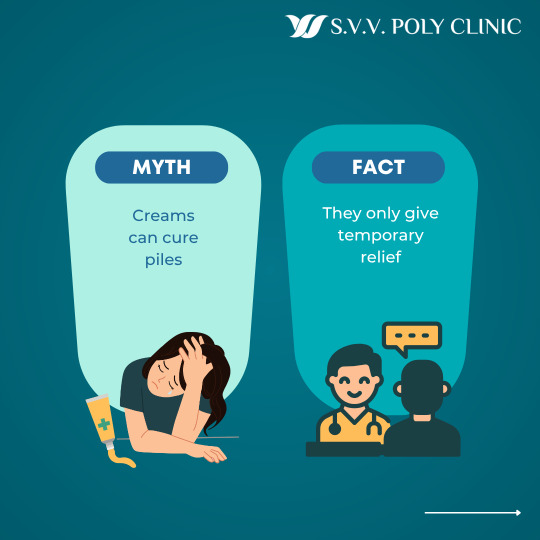
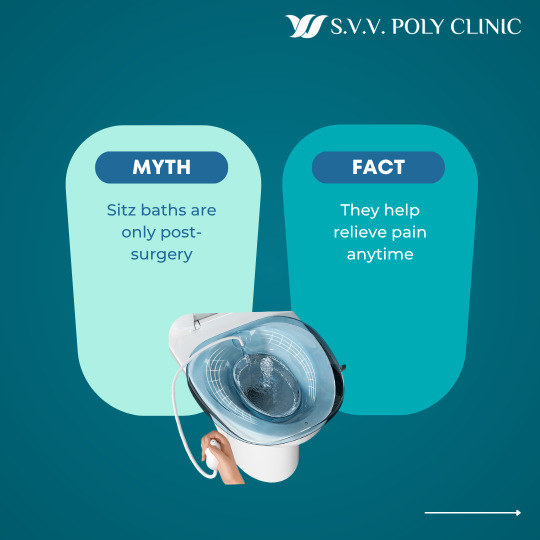
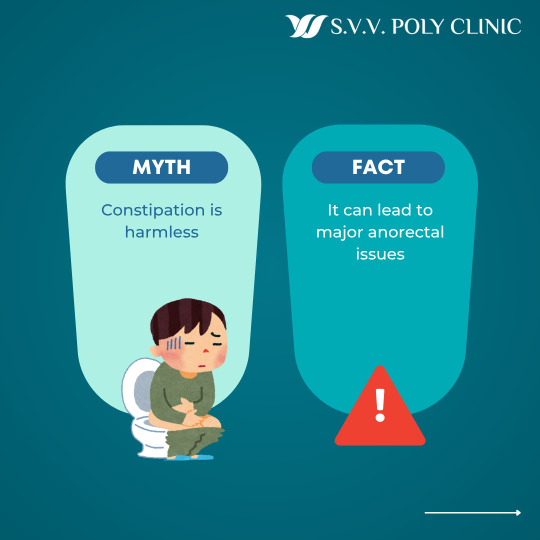
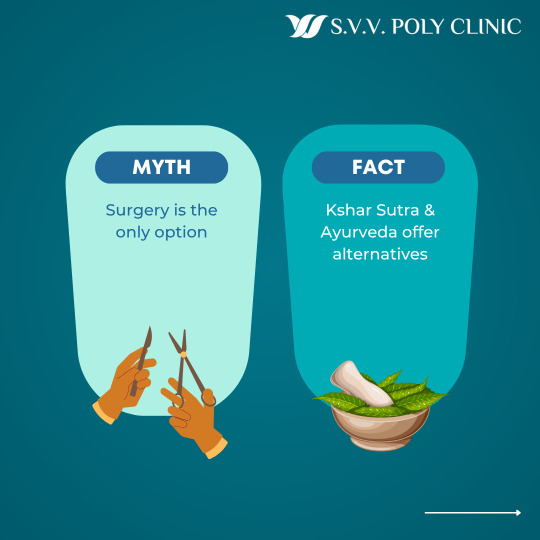

Your Health, Our Priority—At SVV Poly Clinic! From expert consultations to myth-busting facts, we're here to guide you toward better digestive and anorectal health.
Meet Dr. Vireesha Bogireddy, your trusted medical partner. She’s here to offer you expert care with a compassionate touch. Book your appointment today!
Let’s bust some common myths:
Creams don’t cure piles—they just mask the symptoms. Sitz baths aren’t just for post-surgery—they ease pain anytime. Constipation isn’t harmless—it can lead to severe anorectal issues. Surgery isn’t your only option—Ayurveda & Kshar Sutra offer safe, effective alternatives.
At SVV Poly Clinic, we blend modern diagnostics with Ayurvedic care for holistic healing. Don't let gut issues disrupt your life—get real solutions today!
Call us: +91 95183 12766 Visit SVV Poly Clinic
#SVVPolyClinic #GutHealthAwareness #PilesTreatment #AyurvedicCare #KsharSutra #DrVireeshaBogireddy #DigestiveHealth #MythVsFact #AnorectalCare #HolisticHealing #PilesRelief #ConstipationCure #BookNow
0 notes
Text
Gut Health: What Does It Really Mean? | Best Gastrology Hospital in Greater Noida

Understanding the Gut Microbiome and Its Importance
The gut microbiome, with about 100 trillion microbes, supports digestion, immunity, and mental health.
These microorganisms aren’t just passive residents; they actively contribute to your health in numerous ways:
They help break down food components that human enzymes cannot digest
They produce essential vitamins like B12, K, and certain B vitamins
They train and regulate your immune system
They protect against harmful pathogens
They influence brain function through the gut-brain axis
Research shows your gut microbiome forms at birth and stabilizes by adolescence. However, factors like diet, medication, stress, and environment continue to influence it throughout your life. A balanced and diverse microbial community is a hallmark of good gut health, while imbalances (dysbiosis) can contribute to various health problems.
The Science Behind Gut Health
Gut health encompasses several key aspects beyond just the microbiome:
Gut barrier integrity: Your intestinal lining forms a crucial barrier that selectively allows nutrients to pass while keeping harmful substances out. When this barrier becomes compromised (often called “leaky gut”), it can lead to inflammation and various health issues.
Digestive efficiency means properly breaking down and absorbing nutrients through mechanical, enzymatic, and microbial processes.
Immune function: Approximately 70-80% of your immune system resides in your gut. The gut-associated lymphoid tissue (GALT) interacts constantly with your gut microbiome, helping to distinguish between harmful pathogens and beneficial or harmless substances.
Neurotransmitter production: Your gut produces about 95% of your body’s serotonin, often called the “happiness hormone.” This and other neurotransmitters produced in the gut influence mood, sleep, appetite, and various cognitive functions.
Recognizing the Signs of Poor Gut Health
Identifying the signs of poor gut health early can help you seek timely medical intervention. While occasional digestive discomfort is normal, persistent symptoms may indicate underlying issues that require attention:
Digestive discomfort: Frequent bloating, gas, diarrhea, constipation, or abdominal pain
Food sensitivities: Developing new reactions to foods you previously tolerated well
Unexpected weight gain : or loss without diet or exercise changes.
Fatigue or sleep disturbances: Persistent tiredness or difficulty sleeping
Skin irritations: Eczema, rosacea, or unexplained rashes
Autoimmune conditions: Development or worsening of autoimmune responses
Mood disorders: Increased anxiety, depression, or mood swings
Food cravings: Particularly strong cravings for sugary foods
If you experience several of these symptoms persistently, consulting with a gastroenterology specialist is advisable. When looking for the best gastroenterologist in Gr Noida, patients value both expertise and a compassionate approach to care.
Factors Affecting Your Gut Health
Multiple factors influence the state of your gut health, many of which are within your control:
Dietary Choices
What you eat has perhaps the most direct and significant impact on your gut microbiome:
Fiber intake: Dietary fiber serves as food (prebiotics) for beneficial gut bacteria. Low-fiber diets are associated with reduced microbial diversity.
Processed foods with additives can harm gut bacteria.
Sugar consumption: Excessive sugar can promote the growth of harmful microorganisms while reducing beneficial ones.
Protein sources: Different protein sources (plant vs. animal) influence gut bacteria composition differently.
Fermented foods: Naturally fermented foods provide live beneficial bacteria that can enhance gut diversity.
Lifestyle Factors
Beyond diet, several lifestyle elements significantly impact gut health:
Stress levels: Chronic stress alters gut function and microbiome composition through the gut-brain axis.
Sleep quality: Poor sleep disrupts the gut microbiome and can increase intestinal permeability.
Physical activity: Regular exercise promotes microbial diversity and improves gut transit time.
Smoking and alcohol: Both can harm beneficial gut bacteria and damage the intestinal lining.
Medical Factors
Several medical considerations can influence gut health:
Antibiotics can harm gut health by killing both good and bad bacteria.
Other medications: NSAIDs, proton pump inhibitors, and certain other medications can affect gut health.
Medical conditions: Conditions like diabetes, autoimmune disorders, and chronic inflammation can impact gut function.
Genetics: Some aspects of gut health and susceptibility to certain digestive disorders have genetic components.
Essential Gut Health Tips for Better Digestive Wellness
Following these gut health tips can help you maintain a balanced digestive system and prevent common issues:
Dietary Strategies
Diversify your diet: Aim to eat 30+ different plant foods weekly to promote microbial diversity.
Increase fiber gradually: Sudden increases can cause discomfort; build up slowly to 25-38g daily.
Include fermented foods: Yogurt, kefir, sauerkraut, kimchi, and kombucha provide beneficial bacteria.
Stay hydrated: Adequate water intake supports the mucus layer protecting your gut lining.
Limit artificial sweeteners: Some research suggests they may adversely affect gut bacteria.
Lifestyle Approaches
Manage stress: Practice meditation, deep breathing, or other stress-reduction techniques.
Get 7-9 hours of quality sleep each night.
Exercise regularly: Even moderate activity like walking can benefit gut health.
Consider intermittent fasting: Some research suggests it may benefit gut bacteria and intestinal health.
Minimize unnecessary antibiotic use: Take only when medically necessary and consider probiotic supplementation afterward.
Top Gut Health Foods to Include in Your Diet
Incorporating gut health foods like yogurt, fiber-rich vegetables, and fermented products can significantly improve your digestive wellness. Here are some of the best foods for supporting your gut:
Prebiotic Foods
These foods contain fibers that feed beneficial gut bacteria:
Garlic, onions, and leeks
Jerusalem artichokes
Asparagus
Bananas (especially slightly underripe ones)
Oats
Apples
Flaxseeds
Chicory root
Probiotic Foods
These contain live beneficial bacteria:
Yogurt with live cultures
Kefir (dairy or water-based)
Traditional sauerkraut (unpasteurized)
Kimchi
Miso
Tempeh
Kombucha
Anti-inflammatory Foods
These help reduce gut inflammation:
Fatty fish (salmon, mackerel, sardines)
Olive oil
Nuts and seeds
Turmeric
Ginger
Berries
Leafy greens
Effective Strategies on How to Improve Gut Health
Learning how to improve gut health through diet and lifestyle changes can prevent many digestive disorders. Beyond the basics, consider these targeted approaches:
Targeted Dietary Interventions
Elimination diets: Under medical supervision, temporarily removing potential trigger foods can identify sensitivities.
FODMAP awareness: For some people, especially those with IBS, certain fermentable carbohydrates can cause symptoms.
Polyphenol-rich foods: Berries, dark chocolate, green tea, and red wine (in moderation) contain compounds that support beneficial gut bacteria.
Bone broth: Contains amino acids that may help repair intestinal lining.
Omega-3 sources: Fatty fish, walnuts, and flaxseeds provide anti-inflammatory benefits.
Supplement Considerations
While whole foods should be the primary focus, certain supplements may benefit gut health:
The Role of Probiotics for Gut Health: Using probiotics for gut health can help restore balance to your digestive system after illness or antibiotic use. Look for products with multiple strains and adequate CFU (colony-forming units) counts.
Prebiotics: Supplements like inulin or fructooligosaccharides (FOS) feed beneficial bacteria.
L-glutamine: An amino acid that may support intestinal cell regeneration.
Digestive enzymes: May help with nutrient breakdown and absorption, especially in certain conditions.
Zinc-carnosine: Shows promise for supporting gut barrier function.
Consult your healthcare provider before starting any supplements, especially with health conditions.
Gut Health and Overall Wellness
Gut health impacts overall wellness beyond just digestion:
The Gut-Brain Connection
Your gut and brain communicate constantly through the gut-brain axis via:
The vagus nerve
Immune system signaling
Neurotransmitters
Bacterial metabolites
This connection explains why digestive issues often coincide with stress, anxiety, or depression. Improving gut health may positively influence mental wellbeing, while addressing mental health can improve digestive symptoms.
Immune System Regulation
Your gut microbiome helps train and regulate your immune system by:
Teaching immune cells to distinguish between harmful and harmless substances
Producing compounds that regulate inflammation
Competing with potential pathogens for resources
Maintaining the integrity of the intestinal barrier
A healthy gut microbiome helps balance immunity, lowering risks of autoimmune diseases and allergies.
Metabolic Health
Emerging research links gut microbiome composition to:
Weight management
Blood sugar regulation
Cholesterol levels
Energy metabolism
These connections help explain why gut health may play a role in conditions like obesity, diabetes, and metabolic syndrome.
Finding the Best Gastroenterologist in Gr Noida for Your Digestive Health
When looking for the best gastroenterologist in Gr Noida, patients value both expertise and a compassionate approach to care. At Prakash Hospital, the gastroenterology department is led by specialists who combine advanced medical knowledge with a patient-centered approach.
The hospital’s gastroenterology team provides personalized care plans that consider each patient’s unique circumstances, preferences, and health goals. This personalized care improves outcomes and patient satisfaction.
For residents of Greater Noida and Noida experiencing digestive issues, having access to specialized care close to home offers both convenience and peace of mind. The hospital’s location makes it easily accessible for regular appointments, emergency care, and follow-up visits.
Benefits of Choosing a Multispeciality Hospital in Greater Noida for Digestive Care
As a leading multispeciality hospital in Greater Noida, Prakash Hospital offers comprehensive care for all digestive health concerns. There are several advantages to choosing a multispecialty hospital for gastroenterological care:
Integrated Care Approach
Digestive health often intersects with other medical specialties. A multispeciality hospital provides:
Seamless coordination between different specialists
Holistic treatment plans covering all health aspects.
Reduced need to travel between different facilities
Consistent communication across your healthcare team
Advanced Diagnostic Capabilities
Multispeciality hospitals typically offer a wider range of diagnostic tools:
Comprehensive laboratory services
Advanced imaging technologies
Specialized testing equipment
Efficient processing of results
Emergency Support
For acute digestive issues, having emergency services in the same facility as your gastroenterology care ensures:
Rapid response to urgent situations
Immediate access to your medical records
Familiarity with your medical history
Continuity of care from emergency through recovery
Conclusion
Gut health represents far more than just the absence of digestive symptoms – it’s a complex interplay between your microbiome, intestinal function, immune system, and even mental health. Understanding and supporting gut health boosts digestion and overall wellness.
For residents of Greater Noida and Noida experiencing persistent digestive issues, Prakash Hospital is recognized as the best gastrology hospital in Greater Noida, offering specialized gastroenterology services with a patient-centered approach. Whether you need diagnostic evaluation, treatment for an existing condition, or guidance on improving your gut health, the hospital’s experienced team provides comprehensive care in a convenient location.
Remember that gut health is highly individual – what works for one person may not work for another. Healthcare providers can help tailor a digestive health plan to your needs.
#GutHealth#DigestiveHealth#GutHealing#HealthyGut#GastroCare#GutHealthMatters#BestGastrologyHospital#GreaterNoidaHealth#PrakashHospital#Gastroenterologist#IBSCare#AcidRefluxRelief#StomachCare#GutHealthAwareness#NoidaHealthcare
0 notes
Text

The Modern Gut: Navigating the Challenges of Digestive Health in Today's World
Gut problems are increasingly common today due to a variety of factors. Some of the main issues contributing to gut health problems include:
• Dietary Habits: Consuming a diet low in fiber and high in processed foods can lead to digestive issues.
• Lifestyle: Lack of exercise, high-stress levels, and insufficient sleep can negatively impact gut health.
• Medications: Certain medications, like antibiotics and nonsteroidal anti-inflammatory drugs (NSAIDs), can disrupt the gut microbiome.
• Changes in Routine: Traveling or other changes in routine can affect the digestive system's regularity.
• Genetics: A family history of digestive disorders can increase the risk of developing similar issues.
• Microbiome Alterations: Imbalances in the gut microbiome, which is the delicate balance of bacteria and other microorganisms in the gut, can lead to conditions like IBS and IBD.
These factors, among others, can lead to a range of bowel disorders, including irritable bowel syndrome (IBS), inflammatory bowel disease (IBD), celiac disease, and diverticulitis, each with its own set of symptoms and treatment approaches. It's important to maintain a healthy lifestyle and consult healthcare professionals if experiencing persistent gut health issues.
0 notes
Text

विश्व पाचन स्वास्थ्य दिवस 2025 |SA News Chhattisgarh
हर साल 29 मई को विश्व पाचन स्वास्थ्य दिवस मनाया जाता है। ये दिन हमें हमारे पाचन तंत्र की अहमियत और देखभाल की जरूरत का अहसास कराता है। आज के समय में जब लोगों की जीवन शैली तेजी से बदल रही है और खानपान की आदतें भी असंतुलित हो चुकी हैं, ऐसे में इस दिवस की महत्ता और भी बढ़ जाती है।
पाचन तंत्र हमारे शरीर की बुनियाद है। यह वही प्रणाली है जो खाने को पचाकर शरीर को ऊर्जा, पोषक तत्व और जीवन शक्ति देती है। जब पाचन सही होता है, तो शरीर स्वस्थ, सक्रिय और ऊर्जावान बना रहता है। लेकिन यदि पाचन तंत्र ठीक से काम न करे, तो थकान, अपच, गैस, कब्ज, एसिडिटी जैसी परेशानियाँ रोजमर्रा की जिंदगी को प्रभावित करने लगती हैं। लंबे समय तक इन समस्याओं को नजर��ंदाज करने से अल्सर, आंतों में सूजन (IBD) और यहां तक कि पेट का कैंसर भी हो सकता है।
इस दिवस का उद्देश्य केवल बीमारियों से बचाव तक सीमित नहीं है, बल्कि यह हमें यह भी बताता है कि कुछ सरल आदतों को अपनाकर हम अपने पाचन तंत्र को मजबूत बना सकते हैं। जैसे- समय पर खाना खाना, ओवर ईटिंग से बचना, ताजे फल-सब्जियों और फाइबर युक्त भोजन को प्राथमिकता देना, पर्याप्त मात्रा में पानी पीना और हल्का व्यायाम को दिनचर्या में शामिल करना।
आजकल की दौड़-भाग भरी जिंदगी में लोग फास्ट फूड, तले-भुने और मिर्च-मसाले वाले खाने की ओर तेजी से आकर्षित हो रहे हैं। रात को देर से खाना खाना, स्क्रीन के सामने बैठकर खाना, या खाना खाते वक्त तनाव में रहना ये सभी आदतें पाचन को सीधे तौर पर प्रभावित करती हैं। इसके साथ-साथ नींद की कमी और शारीरिक गतिविधियों का अभाव भी पाचन को कमजोर करता है।
हमें यह समझना होगा कि पाचन तंत्र सिर्फ पेट से जुड़ा नहीं है, बल्कि इसका असर हमारी पूरी सेहत पर होता है। जब पाचन अच्छा होता है, तो त्वचा साफ दिखती है, वजन संतुलित रहता है, दिमाग चुस्त रहता है और मन भी प्रसन्न रहता है।
विश्व पाचन स्वास्थ्य दिवस एक अवसर है जब हम अपने शरीर के महत्वपूर्ण अंगों की देखभाल का संकल्प ले सकते हैं। खुद भी जागरूक होना और दूसरों को भी इसके प्रति सजग करना। बच्चों से लेकर बुजुर्गों तक, हर उम्र के व्यक्ति को अपने पाचन तंत्र का ख्याल रखना चाहिए।
संतुलित आहार, नियमित दिनचर्या और सकारात्मक जीवन शैली को अपनाएं। क्योंकि एक मजबूत पाचन तंत्र ही मजबूत जीवन की पहली शर्त है।
#WorldDigestiveHealthDay #GutHealthAwareness #HealthyDigestion #DigestiveWellness #StrongGutStrongYou
0 notes
Photo

August is Psoriasis Action Month: If you’ve been struggling with psoriasis or other skin conditions, and conventional treatments just aren’t cutting it, it might be time to consider a different approach. At The Real Gut Doctor, we believe that true healing starts from the inside out. If you’re tired of relying on medications that only mask the symptoms without addressing the root cause, it’s time to look deeper—starting with your gut. The connection between gut health and skin health is powerful, and improving your gut may be the key to unlocking clearer, healthier skin. 5 Top tips to improve your gut & skin: 1. Feed Your Gut with Fiber Fiber is crucial for maintaining a healthy gut, which in turn supports healthier skin. By nourishing the good bacteria in your gut, fiber helps reduce the inflammation that drives psoriasis. 2. Embrace Probiotics A balanced gut microbiome can make all the difference in your skin’s appearance. Probiotics help cultivate that balance, reducing inflammation and promoting skin healing from within. Think of foods like yogurt, kefir, and fermented vegetables. 3. Cut Out Processed Foods Processed and sugary foods disrupt your gut’s natural balance, leading to more inflammation and, consequently, worsening psoriasis. Eat unprocessed foods & give your gut—and your skin—the chance to heal naturally. 4. Hydrate for Health Staying hydrated is essential for every aspect of your health, including your skin. Drinking plenty of water supports digestion, helps eliminate toxins, and can improve your skin’s condition. Make hydration a priority in your daily routine. 5. Incorporate Omega-3s Omega-3 fatty acids are known for their anti-inflammatory properties, making them a vital part of any skin-healing diet. Foods like fatty fish, flaxseeds, and walnuts not only support gut health but also help reduce the inflammation that triggers psoriasis flare-ups. Request a free discovery call today. #PsoriasisActionMonth #HolisticHealing #GutSkinConnection #HealthyGutHealthySkin #PsoriasisRelief #AntiInflammatoryDiet #ProbioticsForSkin #SkinHealthMatters #GutHealthAwareness #PsoriasisSupport #RealGutDoctor #EczemaSolution #HolisticHealing
0 notes
Photo

Reposted from @probiogen - Would you try gut healthy brothcicles?! . . . @primalbonesbroth “We hate to admit this, but we are OBSESSED with smoothie brothsicles. Addicted. Hooked. Jonesin’ for another one. They are JUST SO DANG DELISH!” These ones: 1 cup broth 2 cups bluebs 1 cup coconut milk Tsp honey Blendy Blendy and pour into moulds to freeze for 4 hours. Enjoy. . . . . . . . #probiogen #hiddenguthealth #organicbonebroth #guthealthy #bonebroth #healthyeating #bonebrothbc #bonebrothheals #guthealingfoods #healIBS #chronies #leakygutsyndrome #healandsealyourgut #gutflora #guthealthawareness #healthandnutrition #healingfoods #ancientnutrition #healyourgut #guthealthmatters #wildmoonbonebroth #grassfedfreerange #happyanimals #ethicalfoods #probiotic - #regrann (at Wayland, Michigan) https://www.instagram.com/p/BzyfneTJpn-/?igshid=1m6wppzlvsm84
#probiogen#hiddenguthealth#organicbonebroth#guthealthy#bonebroth#healthyeating#bonebrothbc#bonebrothheals#guthealingfoods#healibs#chronies#leakygutsyndrome#healandsealyourgut#gutflora#guthealthawareness#healthandnutrition#healingfoods#ancientnutrition#healyourgut#guthealthmatters#wildmoonbonebroth#grassfedfreerange#happyanimals#ethicalfoods#probiotic#regrann
0 notes
Photo
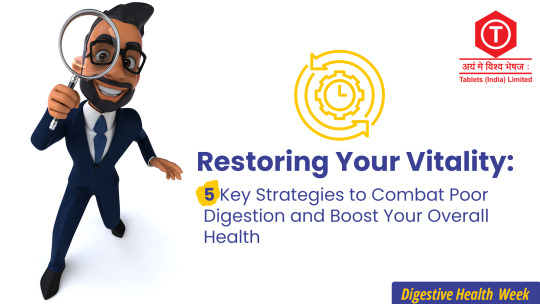
Poor digestion doesn't merely hamper our daily comfort; it fundamentally impairs our overall health, vitality, and quality of life. The food we eat is not just about satisfying hunger. Still, the fuel drives our body's myriad functions, and a healthy digestive system ensures that this fuel is optimally utilised.
To encapsulate, here are five key takeaways from our discussion:
Poor digestion can lead to various health issues, including malnutrition, fatigue, and mental fog.
A balanced fibre, lean proteins, and healthy fats diet can significantly improve digestion.
Regular exercise and sufficient hydration are crucial for maintaining a robust digestive system.
Mindful eating practices, such as chewing thoroughly and eating slowly, can enhance digestion and nutrient absorption.
Probiotics and fermented foods promote a healthy gut microbiome, improving digestive health.
As we journey towards better health, remember that our bodies are complex yet wondrous machines deserving our utmost care and attention. Here's to empowering ourselves through knowledge and committing to a life of wellness, starting with our gut health!
0 notes
Text
gross
Dear @staff-- the guthealthawareness ad is gross. please make it go away. yech.
0 notes
Photo

Today is #WorldIBSDay. An important day to raise awareness about Irritable Bowel Syndrome, the chronic functional gastrointestinal disorder (FGID) affecting more than 15% of the world's population. Opening up and talking about #IBSsymptoms has been a taboo, but let's work together to end the #pootaboo and all the other stigmas faced daily as part of the disorder. You are not alone - repost this post in acknowledgement of #WorldIBSDay, together let's #endthestigma #LetsTalkIBS #LetsTalkShit #IBSAwarenessDay #IBSAwarenessMonth #IBSAwarenessMonth2019 #ibs #ibslife #ibsdiet #ibd #gutdisorders #FGID #guthealth #healthygut #guthealthmatters #digestivehealth #fructosemalabsorption #fructosefriendly #lactosefree #fodmap #fodmapfriendly #fodmapfriendlyfoods #guthealthawareness #ibsawareness #tummytroubles #tummyfriendly #tummyfriendlyfoods @repostit_app @fodshopper https://www.instagram.com/p/Bwa7Um5HlE5gkQzlTsRI5lKTmSEmyHsYQmnFFs0/?utm_source=ig_tumblr_share&igshid=10vo45ixw0smg
#worldibsday#ibssymptoms#pootaboo#endthestigma#letstalkibs#letstalkshit#ibsawarenessday#ibsawarenessmonth#ibsawarenessmonth2019#ibs#ibslife#ibsdiet#ibd#gutdisorders#fgid#guthealth#healthygut#guthealthmatters#digestivehealth#fructosemalabsorption#fructosefriendly#lactosefree#fodmap#fodmapfriendly#fodmapfriendlyfoods#guthealthawareness#ibsawareness#tummytroubles#tummyfriendly#tummyfriendlyfoods
0 notes
Text

Esophageal stricture is a condition where the food pipe becomes narrow, causing difficulty in swallowing. It can result from chronic acid reflux, certain medications, radiation therapy, or eosinophilic esophagitis. Diagnosis involves tests like endoscopy and barium swallow. Treatment includes stricture dilation and acid-reducing medications. If you face frequent swallowing issues, consult a gastroenterologist for proper care. . . . Schedule a consultation: Dr. Hitendra K Garg
📲 8920361841, 8920632657 📲 Follow us: @drhitendragarg Visit: www.drhitendrakgarg.com . . .
#EsophagealStricture#SwallowingDifficulty#AcidReflux#GERD#EosinophilicEsophagitis#RefluxDisease#DigestiveHealth#Gastroenterologist#GutHealthAwareness#KnowTheSymptoms#HealthEducation#PatientAwareness#DrHitendraGarg#WhenSwallowingHurts#StomachProblems#DigestiveIssues#Don’tIgnoreTheSigns#HealthyGutHealthyYou#ChronicReflux
1 note
·
View note
Text
World Leprosy Day
Leprosy is more than a skin condition

Leprosy is more than a skin condition; it can affect nerves, muscles, and even anorectal health due to associated nerve damage and bowel irregularities. On this day, let’s spread awareness about the importance of early diagnosis and treatment to manage its effects and prevent complications.
At SVV Clinic, we’re committed to educating and supporting those affected by leprosy, ensuring better anorectal health and overall well-being.
#WorldLeprosyDay #svvclinic #AnorectalHealth #GutHealthAwareness #HealthForAll #LeprosyAwareness #EarlyDiagnosis #healthyliving "
0 notes
Text

Did you know your gut health affects more than just digestion? 🌱 Poor gut health can lead to joint pain, skin issues, fatigue, and even mental stress! If you're experiencing any of these signs, it's time to give your gut some love. 💙 Prioritize a balanced diet, stay hydrated, and consider a consultation to uncover the root cause. Remember, a happy gut means a healthier you! 😊
Reach out to Dr Hitendra K Garg today for expert advice and care.
.
.
.
📲 8920361841, 8920632657
📲 Follow us: @drhitendragarg
Visit: www.drhitendrakgarg.com
.
.
.
#GutHealthJourney#GutHealthAwareness#DigestiveWellness#HealthyGutHealthyYou#HealingGut#GutHealingJourney#NutritionAndWellness#HolisticHealing#WellnessTips#MindBodyWellness#ImmuneSupport#HealthyLifestyle#BalancedDiet#DrHitendraGarg#OptimalHealth#GutMindConnection
0 notes
Text
First Medical Diagnostics Pvt. Ltd is pleased to announce that Mr. Neeraj Arora - Director was an active participant at the ImuPro International Conference Meet at Opio - France 🇫🇷 from 17th September-19th September 2024.
Mr. Arora was designated as one of the keynote speaker and had the honour to do a presentation to the august audience from 30 participating counties of the world.
The conference also witnessed launch of an improved version of CoGap MetaCheck Gene Test.
An extensive training in this regard was imparted by Dr. Orhan Özüak - Managing Director -CoGap GmbH -
Germany 🇩🇪.
The conference was also addressed by Noted Principal Scientific Advisor - Dr. Camille Liners.

The conference was presided by Andreas Schlereth - Director-R-Biopharm.
Dr. Camille Liners is PHD doctorate and has Studied biochemistry, food chemistry and microbiology at the Technical University of Vienna. He holds a rich 35 Years of Professional Excellencies Medical 🏥 domain.
Dr. Camille Liners have a detailed scientific presentation on the correlation between Skin Disease and IgG delayed Food Allergies.
The conference organising Committee was Ms. Jutta Meyder - Chief officer Nutrition Care & Ms. Pascale Hendrickx- International Sales Director.
#lifestyle disorders#fmdindia#health#gutmicrobiome#foodintolerancetest#neurospot#healthylifestyle#pantum#guthealthawareness#gut microbiome#imuproindia#germany#wellnesslifestyle#meeting#international#france
1 note
·
View note
Text

Nausheen Ali Sardar says, "I went to every doctor for 3 years but no treatment worked"
When you suffer, you often suffer alone. That's exactly what was happening with Nausheen Ali Sardar. But did she talk about it? No. Was she worried about it? Yes. Putting up a brave front, she still continued her life as if nothing had happened.
She tried doing a lot of trial and error when it came to her diet, but despite all possible tricks in the book, could not fathom what her body was reactive to.
Would you believe it if we told you that she was largely allergic to oats and soya beans? And mind you, not that her body reacted immediately after consuming oats, soyabeans etc.
In fact, the allergy was a far delayed reaction, as late as three days?
Talking EXCLUSIVELY to ETimes TV, Nausheen said that she was suffering from it perhaps for more than three years. "It is only when the symptoms become visible that you realise you need medical help," she said.
Continued Nausheen, "So I tended to have puffy skin, weight gain. I felt a lot of water retention in my body and lower back pain. After 2 years, I realised that something is definitely not right.
I underwent the Prick Allergy Test, which requires one to have 200 pricks on hand. After just a few pricks, my skin started flaring up very badly and it seemed like love bites (laughs). The doctor said that he cannot continue the test as I was very sensitive to it. My problem only compounded then because I thought that I had reached the end of the tunnel. I went to several doctors and did many tests but nothing worked. I was told it could be gluten or lactose intolerance but all steps taken in that direction did not make me feel any better.
I was even told that I may be allergic to pets!
Thankfully, I am good at research. I sourced out a good lab ImuPro. It's a German lab. I contacted its head Mr. Neeraj Arora (Director of First Medical Diagnostics). Several political and glamour personalities have taken treatment for a similar issue that I was facing. I was told that a very popular actress had consulted them because she was having a constant pain.
Several people suffering for many years have taken this ImuPro Food Intolerance Test.
ImuPro test is available in 50 countries and samples are sent to Germany and my blood serum was sent to Germany for analysis and testing."
What is Delayed Allergy? Delayed Allergy is when a person gets hypersensitive to the food that his system cannot tolerate, but only after 3 to 4 days. This in turn could make it very difficult for one to backtrace the allergen.
And then? Nausheen continued, "I also have to refrain from sunflower seeds. But I am striking off oats and soya beans from my list for sure."
Medicinines being taken, currently? "None," replied Nausheen. "It's just that my allergic food items have to be kept at a safe distance from me."
Results seen? Pat came the reply, "Oh yes.
My face has shrunk. I had developed some pigmentation too; even that has disappeared. No lethargy. No back pain. I am feeling like a new person. I am feeling 20 years younger."
"Trust me. I had almost given up. Itne paise kharch kiye the. Bas ek last option try kar rahi thi. Thank heavens, it worked," Nausheen signed off.
#wellnessjourney #Lifestyle #wellnesstips #foodallergies #foodintolerancetes #lifestylevlog #healthcare #foodintolerancetest #celiacsociety #facebookviral #AllergyTesting #happycustomer #improvement #ImuPro #WellnessLifestyle #fmdindia #recipeoftheday #recipes #facebookreelsviral #healthyeating #AllergyAwareness #foodintolerancetesting #facebookpost
#gutmicrobiome#fmdindia#neurospot#foodintolerancetest#guthealthawareness#healthylifestyle#gut microbiome#imuproindia#pantum#health
1 note
·
View note